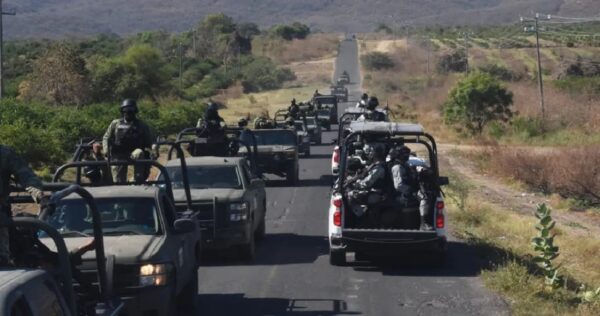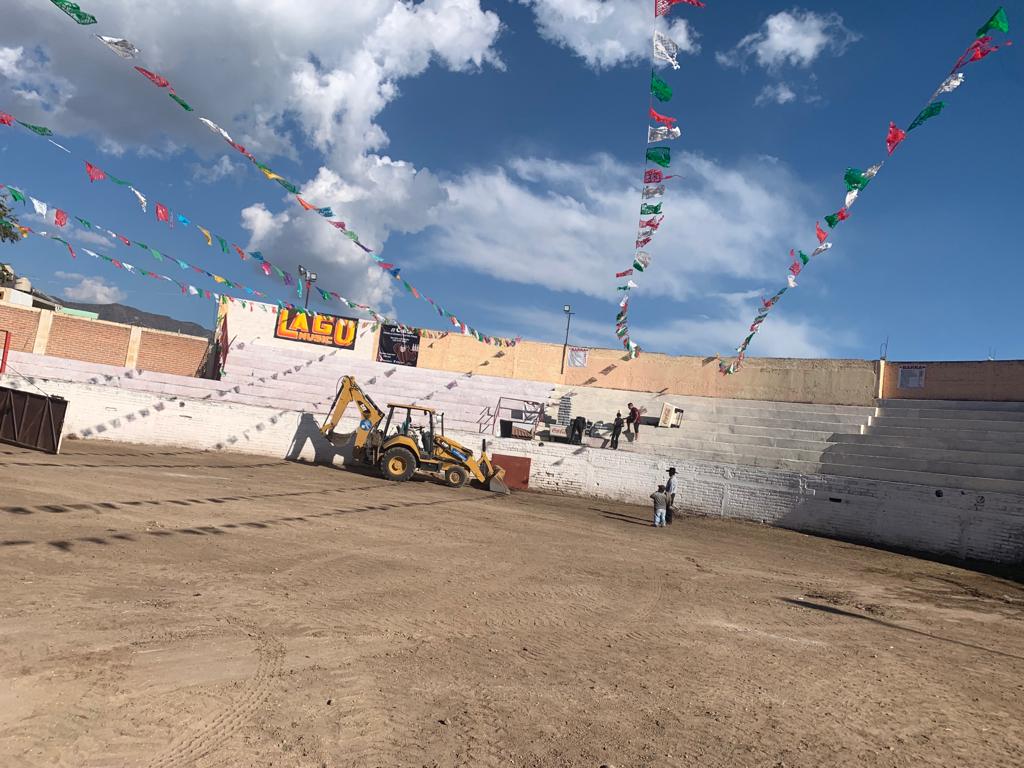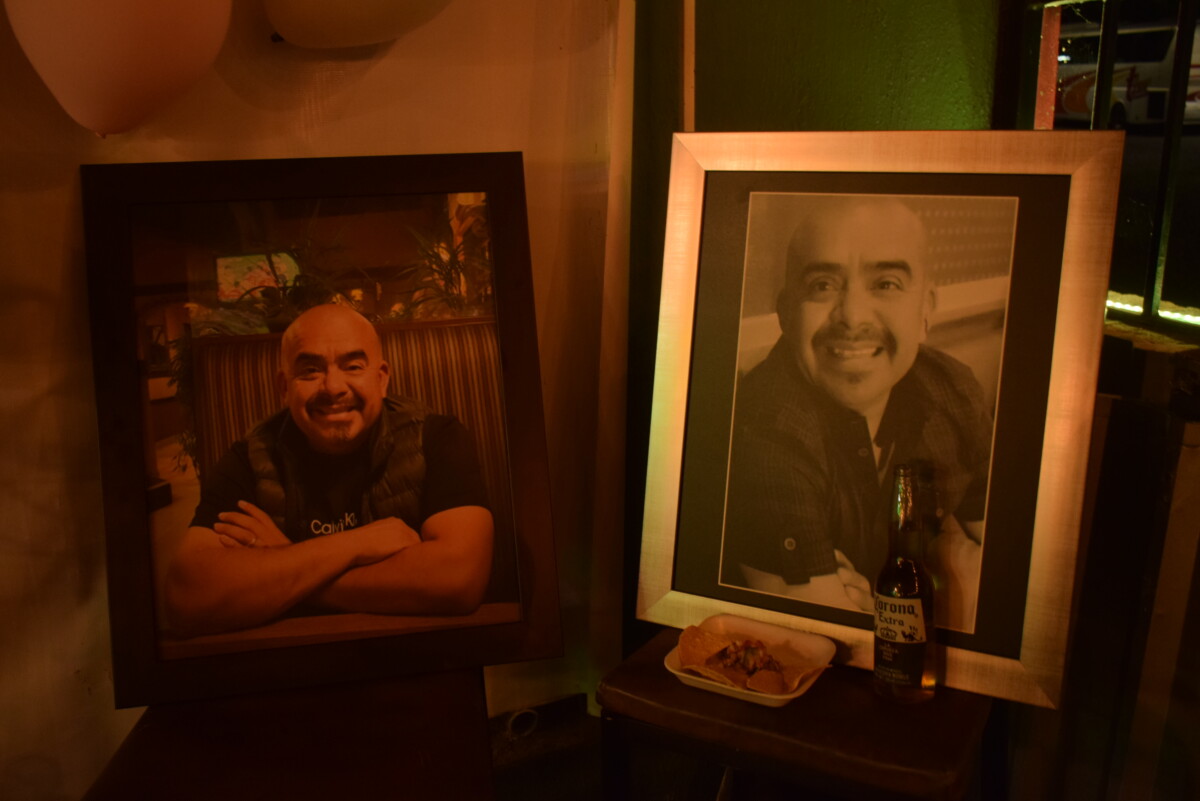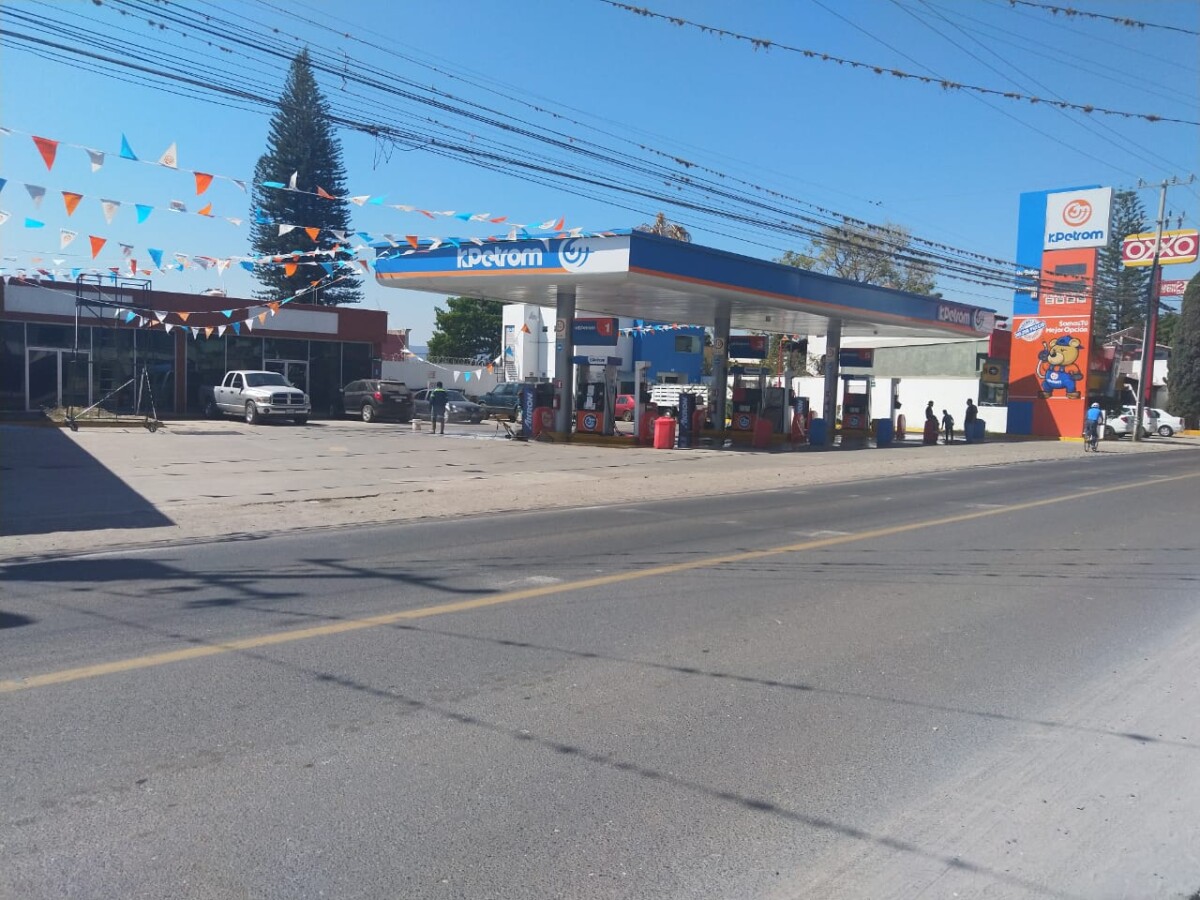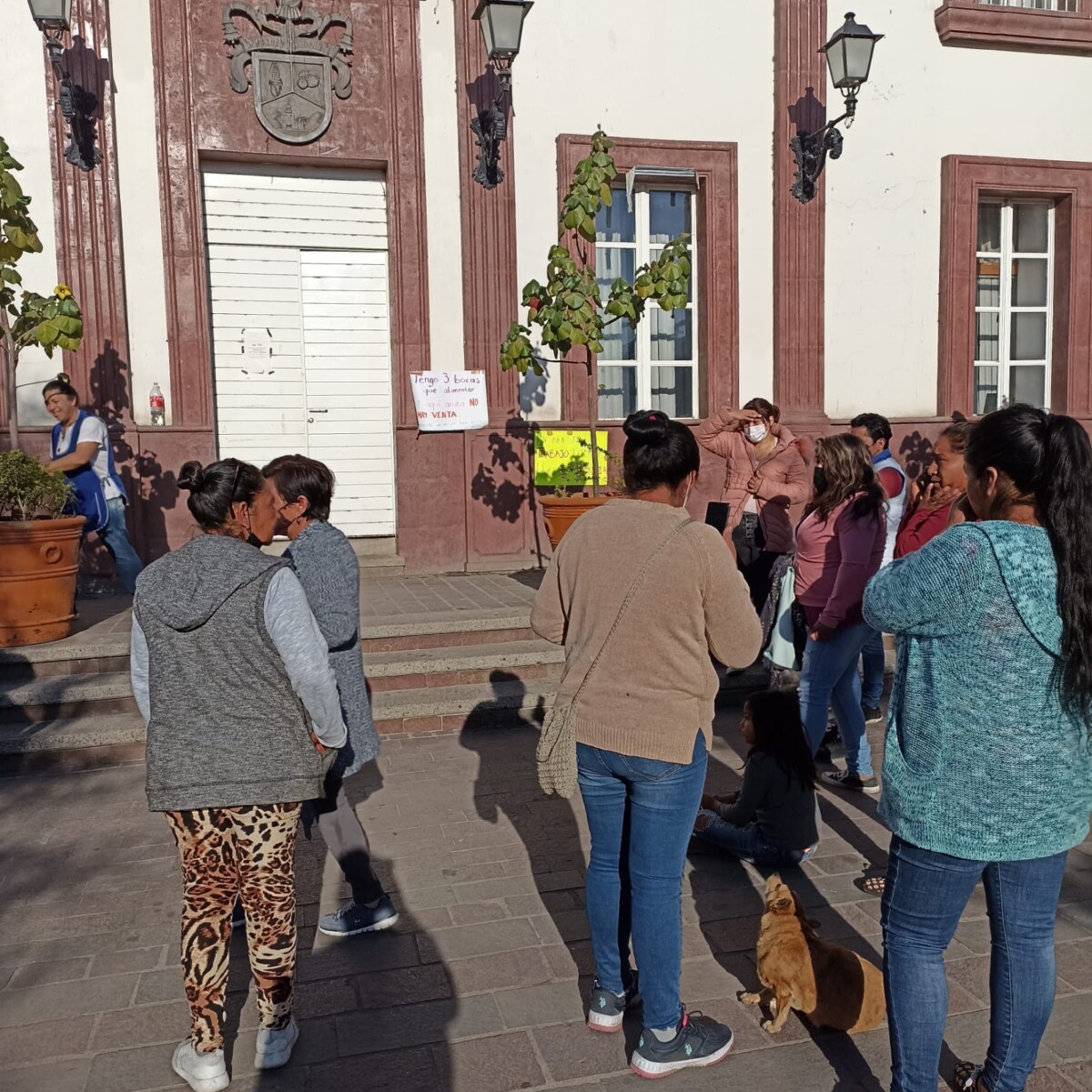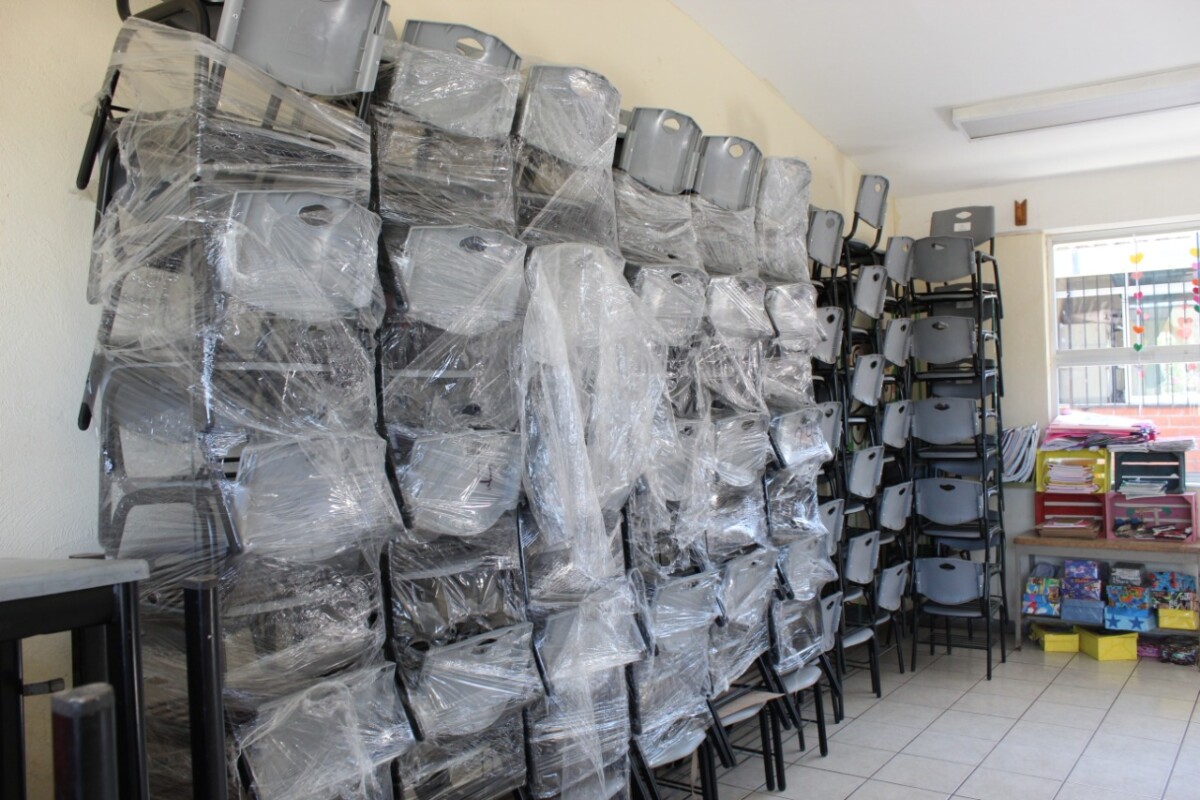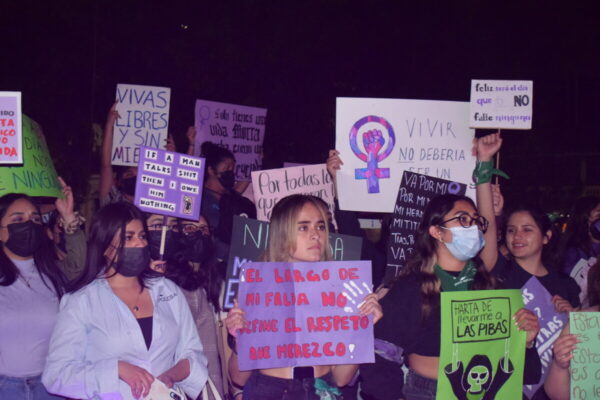municipio
Remiten al MP a joven de Chapala por presunta portación de drogas
Durante su detención, el joven de 18 años portaba cinco envoltorios de la droga conocida como cristal. Foto: Fiscalía.
Redacción.- Oficiales de la Secretaría de Seguridad del Estado de Jalisco (SSE) detuvieron en el municipio de Chapala a un sujeto que fue sorprendido en presunta posesión de narcóticos.

Braulio Esteban “N”, quedó a disposición de la agencia ministerial por presunta posesión de narcóticos. Foto: Fiscalía.
Fue cuando policías del estado mantenían labores de vigilancia en calles de la colonia Santa María y fue sobre el cruce de Puerta del Horno y Pescadores donde detectaron que un hombre intentaba huir del lugar al percatarse de su presencia.
Metros adelante interceptaron a Braulio Esteban «N», de 18 años, a quien, mediante la aplicación de los protocolos de seguridad, le fueron asegurados cinco envoltorios con la droga conocida como cristal, lo que motivó su arresto.
El detenido quedó a disposición de la agencia ministerial, instancia que dará continuidad a las indagatorias correspondientes.
Refuerzan seguridad en Jocotepec y la región tras hechos violentos
El 13 de marzo arribaron los refuerzos a Jalisco con 500 militares de la Secretaría de la Defensa Nacional. Foto: cortesía.
Redacción.- Después de que un ataque armado dejó dos policías muertos y dos paramédicos heridos en Jocotepec, así como camiones incendiados en Tamazula de Gordiano, el pasado 10 de marzo, las autoridades estatales anunciaron el refuerzo de la seguridad en la región.
Luego de sostener una reunión con el gabinete de seguridad, el gobernador del estado, Enrique Alfaro Ramírez, señaló que se reforzaría la vigilancia en los municipios donde se registraron hechos violentos, además de las zonas colindantes con Michoacán.
“Estos hechos no pueden hacernos caer en el miedo y la zozobra”, comentó el gobernador en un mensaje emitido a través de sus redes sociales.
Pese a la serie de hechos violentos que vivió la noche del 10 de marzo, Alfaro Ramírez consideró que Jalisco se encuentra en calma y que los problemas de seguridad corresponden a los vecinos estados de Colima, Michoacán y Zacatecas.
Aunado a esto, el 13 de marzo la Secretaría de la Defensa Nacional (Sedena) en Jalisco, anunció la llegada de otros 500 militares para reforzar la seguridad en apoyo a las autoridades estatales y municipales.
Bajo la estrategia “Fuerza de Tarea Conjunta México”, la corporación realizará diversas operaciones para apoyar a las autoridades locales.
“La Fuerza de Tarea Conjunta México tiene las características de gran movilidad y potencia, pero sobre todo la capacidad de ser desplegada de manera rápida a una o varias partes del territorio nacional por tierra o aire”, explicó la Sedena.
Jocotepec communal land owners protest inability to use heavy equipment
Héctor Ruiz Mejía (Jocotepec).- The owners of communal or rural “ejido” land have complained that the City Council has hoarded the heavy machinery granted to the municipality of Jocotepec by the State of Jalisco to promote rural development. The protesters, who preferred to remain anonymous, said that the program formerly known as «SAGARPA Modules» and now renamed «A Toda Máquina» or “Full Speed Ahead” has been utilized mainly for governmental public works projects within the town, but not in the communal lands.
Although an agreement had been previously signed between the ejido landowners and the Municipality to be able to make use of the heavy equipment when it is not in use by the city, the farmers have not been able to utilize it.
«They told us that the equipment has been in use since March, that they cannot lend it to us until July, but in July the rains are coming and we will not be able to work in anything but pure mud,» added one of the ejidatarios. They added that the machinery is incomplete and that, despite the fact that the program is «free,» they have always been charged for diesel fuel.
This newspaper contacted Francisco Salazar Hernández, director of Rural Development, to confirm the report; the official was unavailable to answer.
In 2019 the municipal president of Jocotepec, José Miguel Gómez López, received from the State Government a motor-driven compactor, backhoe, vibro-compactor, excavator and dump truck by the A Toda Máquina program. The Government of Jalisco invested more than 3.6 million pesos (about US$172,000) to deliver about 641 pieces of heavy equipment machinery to 121 municipalities in the state
Because this program was created with the intention of promoting rural development, the rural ejido landowners have demanded access to the machinery.
Translated by MaryAnne Marble
Jorge Luis Padilla ‘El Trokita’
A permanent altar set up by the family in memory of Jorge Luis Padilla Perales during the 50th birthday of his sister Silvia Araceli at El Toro restaurant.
Jazmín Stengel (Chapala).– Trokita was an example to follow. Jorge Luis Padilla Perales, 1970 – 2021, better known in Chapala and California as ‘El Trokita’, was and will continue to be the absent son with the most presence in his hometown. His memory was engraved forever in the Paseo de los Ausentes on February 24.
“Hijos Ausentes” or Absent Children is a time-honored tradition for children who emigrate to the US or Canada to send money back to help support their family and hometown community. The Paseo de los Ausentes is a walkway in Chapala dedicated to their honor.
Jorge Luis was the oldest of five siblings and originally from the La Purisima neighborhood in Chapala. In 1987 he left for the United States at the young age of 17, with the mission of helping his mother Margarita Perales Perez after the separation with his father Jose Luis Padilla Sanchez.
From a young age, Padilla Perales was very supportive, «he took care of his people,» recalls Sandra, the second of the siblings, to whom he was very close. Once in California, ‘El Trokita’, a nickname that has been passed down through the generations to the men of the Padilla family, dedicated his time and effort to a graphic design printing company, with which he managed to support his family.
Like most absent children, there were times when ‘El Trokita’ visited. But he «never traveled empty-handed,» his family recalled. Jorge began his altruistic work by collecting money from fellow California emigrants to support Chapala’s needy with resources.
«He organized fairs and events,» said his sister Silvia. Trokita was supportive of those in need, «he bought medicine for the sick and even bought wheelchairs,» added Sandra.
For these and many other things, such as distributing food, promoting sports and supporting the education of children, Jorge remained until his last breath as the active link between the absent children and his people, an action that earned him the love of the people of Chapala.
After his death, still unknown to the family, on November 15, 2021, Sandra dedicated a corrido (story told through song) to her brother so that everyone in Chapala and California can remember him as he was. It can be found on YouTube with the title «Jorge Luis Padilla ‘El Trokita».
Sandra acknowledged that no one can match the social work that her brother was able to do to benefit the community of Chapala. But that does not mean that his legacy will be lost, «we will do our best to continue his mission, each one in the best way we can,» she said.
Following the death of ‘El Trokita’, the Government of Chapala announced Salvador Alcántar Hernández as the new Coordinator of Chapala’s Absent Children on February 24. The same day the black granite plaque honoring the memory of Jorge Luis Padilla Perales was placed in the Paseo de los Ausentes next to Chapala’s main square.
Translated by Christalle Dalsted
Due to workers’ strike, gas station is closed in San Juan Cosalá
Alma Serrano.– Since February 11, the «KPetrom» gas station, located on the Chapala-Jocotepec highway, at the crossroads of San Juan Cosalá, has been out of service, due to a workers’ strike for breach of contract.
According to the notice placed on the dispensing machines, the union of workers and employees in the commerce branch in the state of Jalisco stated that, by agreement of the extraordinary general assembly, all the workers belonging to the company have agreed to call a strike in compliance with the demands of articles 920, 18, 782, 827, 921 of the Federal Labor Law.
The owners are Bransle, S. de R.L. de C.V., which is in the business of the purchase, sale, and distribution of diesel gasoline, with service station number E11757 and permit number PL/9296/EXP/ES/2015. The legal representative is José Carlos Martín Gonzáles.
Translated by Colleen Beery
Merchants protest after being removed from the streets in Jocotepec
First on Morelos street and then in front of the presidency, a group of 15 street vendors demonstrated in Jocotepec. Photo: Miguel Cerna.
Héctor Ruiz Mejía (Jococtepec).- A group of street vendors demonstrated on March 2 on Morelos Street and at the Municipal Presidency of Jocotepec.
A little more than a month after being relocated to the upper part of the market, the 15 dissatisfied merchants said they had low or no sales in the space assigned to them, so they decided to raise their voices to be heard by the municipal president José Miguel Gómez López.
The vendors set up their stalls on the sidewalk behind the DIF building around 7:00 a.m. with the intention of «giving away their products to passersby» in protest.
However, before their arrival, two municipal police patrol cars and at least ten police officers were already waiting for them. Immediately, the uniformed officers blocked the sidewalk and prevented citizens and merchants from selling their products.
An hour later, personnel from the Department of Registration and Licenses arrived at the site and proceeded to remove the merchandise from the demonstrators, their tables and all their work material. Avocados, honey, nopales and sweet bread were some of the products withheld.
«They took away our products, they did not let the people pass by. People wanted to come closer to buy from us, and I was giving them my product. The police did not let us give anything to them, that is unfair,» said Carmen Aguilar.
Demanding to be heard and attended to by Mayor José Miguel Gómez López, the vendors moved to the outskirts of the town where they placed signs with the slogans: «Our family depends on our work» and «I have three mouths to feed and there are no sales up here.»
In the absence of Gómez López who, according to information from the Registration & Licenses staff, was in the city of Guadalajara, the group of protesters was joined by municipal trustee Carlos Alberto Zúñiga Chacón in the Bicentennial Hall at 9:00 a.m.
«What was done today in the morning was a demonstration, not to make disorder as was mentioned (by Registration & Licenses personnel), but to make them listen to us, because the truth is that we all need to work, but to work in a place where we have sales,» said one of the affected merchants.
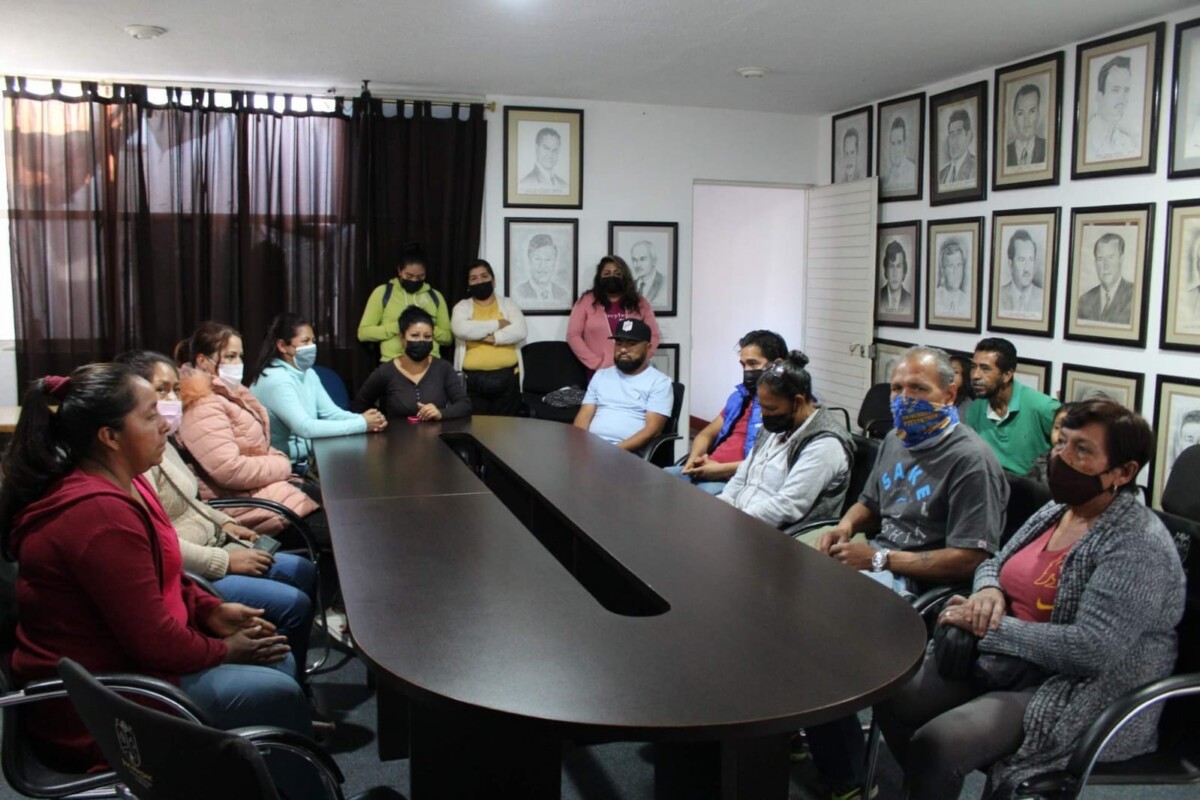
The merchants met in the town hall with Carlos Alberto Zúñiga Chacón, the municipal trustee, after the demonstration. Photo: Miguel Cerna.
In the meeting, the merchants explained to the trustee the economic difficulties that the relocation has brought them due to low sales, and asked for his intervention to reach an agreement that will benefit them as soon as possible.
«We are day after day abiding by their rules, we have not left (the market) at all, and yet there are days when we take home 20 pesos in sales. My two sisters lost their rented houses and now they are living with me; there are 12 children sleeping on the floor and without much to eat,» commented Ana, who sells nopales.
«They don’t want to lend us (money), they have to leave without paying for the food because the children are hungry, do you think it’s fair that we go around scavenging for scraps from the fruit stores to have something to eat?» added Ana.
After listening to their demands, Zúñiga Chacón promised to work on a modification project that would allow the vendors to install themselves on the side of the market on Josefa Ortiz de Domínguez Street, although he clarified to them that there would not be an immediate resolution because the work would have to be requested from the State Government.
«The request that I made for the modification of the stairway on Josefa Street and/or inside the market cannot be made at the moment, since the work needs to be validated by the corresponding state authorities,» the trustee answered to the affected parties on March 3.
So far, the municipal president, José Miguel Gómez López, has not issued any statement on the matter. The merchants are hoping for a favorable resolution to the situation, since the almost null sales have already begun to affect their lives.
«The president can give us a statement whenever he wants, but he should know one thing: we no longer want to be upstairs,» said one of the vendors.
Translated by Sydney Metrick
New furniture for two schools in Jocotepec
The 246 new and ready to install chairs were received last week by the J. Vicente Negrete school. Photo: Courtesy.
Héctor Ruiz Mejía (Jocotepec).– The Jalisco Ministry of Education (SEJ), in coordination with municipal authorities, delivered furniture for two basic education schools in Jocotepec last week.
After 20 years of being overlooked, the J. Vicente Negrete elementary school in El Molino and the Francisco Villa elementary school in La Loma received 711,978.56 pesos (about US$34,000) in school equipment.
The Francisco Villa school received 246 chairs made of ironwork with plastic and 126 binary tables for students, at a cost of 362,743.60 pesos (about US$17,300).
In the case of J. Vicente Negrete, the equipment also consisted of 246 chairs and 126 tables, plus 12 chairs specifically for the teaching staff at a value of 349,234.96 pesos (about US$16,700).
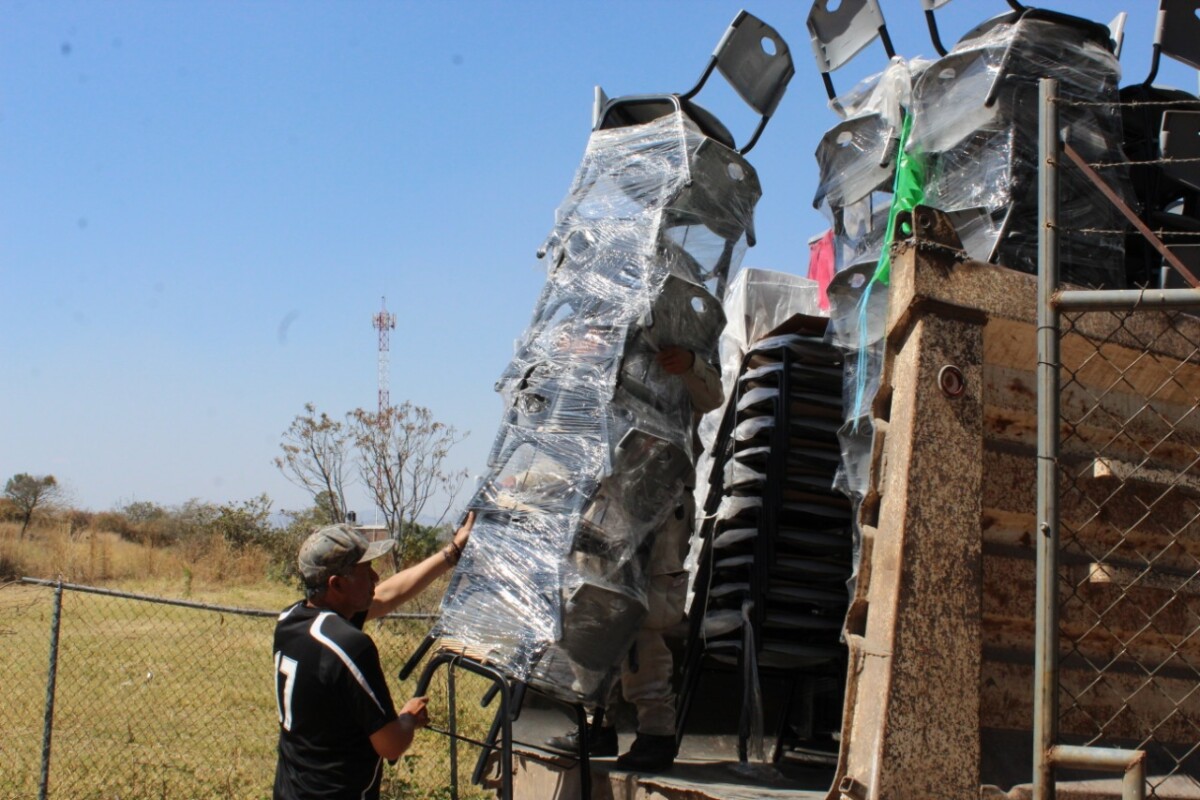
Jocotepec City Hall personnel delivered the furniture to the J. Vicente Negrete school in El Molino. Photo: Courtesy.
«The Ministry of Education provided complete furniture for the elementary school in collaboration with the municipality’s personnel,» stated Ana María Cano Espinoza, director of education of the municipality.
Mayra Berenice García Ramírez, principal of the J. Vicente Negrete school, thanked the authorities for the support and for «finally being listened to,» as she explained that their equipment had not been updated for more than 20 years.
«The children are thrilled with the new furniture, it already feels different. We had been using the same tables and chairs for more than 20 years and they were getting uncomfortable,» she said.
Also, the SSJ provided 160 meters of wiring for the El Molino elementary school because in September 2021 it suffered several robberies that left it without electrical circuits.
Translated by Sandy Britton
Renovation approved for Avenida Madero, one of Chapala’s main street
Chapala Mayor Alejandro Aguirre Curiel (left), with Congresswoman Claudia Murguía Torres and the Chief of the State Cabinet, Hugo Luna, after the mayor was informed of the repair approval.
Editor. – Chapala Municipal President Alejandro de Jesús Aguirre Curiel has announced approval of a Renovation of Urban Image project for the main street in downtown Chapala. Plans call for cobblestones to be replaced with hydraulic cement. Sidewalks and curbs will also be improved.
“I am very pleased that after presenting joint work projects with the government of Jalisco and the municipality, and thanks to the management of Congresswoman Claudia Murguía Torres, today the Chief of State Cabinet, Hugo Luna, has confirmed to me that the projects were accepted,” Aguirre posted on social networks.

The Public Works Department of the Municipality of Chapala closed part of Avenida Francisco I. Madero at its intersection with Paseo Ramón Corona in May 2019 to build a crosswalk.
“One of the most important projects is the renovation of Avenida Madero. The cobblestone will be replaced by hydraulic concrete, plus the sidewalks and curbs will be replaced,” he added in his March 2 posting.
In his message he thanked Jalisco Governor Enrique Alfaro Ramírez and assured that, “with this support and coordinated work our city and delegations will have better infrastructure that will be good for tourism in the state.”
Chapala Director of Social Communication Elizabeth Oropeza said the municipality is waiting for the state’s Secretary of Infrastructure and Public Works to present the project, which will be adapted by the state agency to the needs of the population.
Translated by Mike Rogers
Se Manifiestan más de 200 mujeres en Chapala
“El largo de mi falda no define el respeto que merezco”, se leyó en uno de los muchos carteles que expresaban su derecho de vestir con libertad.
Redacción. – La manifestación pacífica por parte de las mujeres del municipio de Chapala, con motivo del “Día Internacional de la Mujer” contó con la participación de más de 200 féminas la noche del pasado 8 de marzo.
El contingente circuló a lo largo de la Avenida Francisco I. Madero de la cabecera municipal hasta llegar al edificio de la alcaldía, donde de manera pública denunciaron abusos en su contra así como los nombres de sus abusadores.
A continuación te compartimos la galería de imágenes de la manifestación tomadas por Jazmín Stengel:

Cerca de 200 jóvenes mujeres se encontraron frente al Coliseo Benito Juárez el pasado 8M para manifestar sus derechos y exhibir a sus agresores.

Al concluir la manifestación, las protestantes encendieron velas frente al altar de las que “ya no están”, en su memoría.

“Mi cuerpo no quiere tu opinión”, y “Somos el grito de las que no tienen voz”, fueron otras de las consignas presentadas en los carteles.

El ayuntamiento municipal fue cubierto durante más de dos días por carteles de protesta femenina. En una de las puertas fue colocado un altar a las desaparecidas titulado “Disculpen las molestias, nos están matando”. Y “Hasta que no me maten me vas a creer”, se lee rodeado de las 13 impresiones de Alerta Ambar que fueron colocadas.

“Una madre que está criando también está luchando”, escribieron algunas féminas que destacaban la educación antiviolencia para los actuales niños.

“Esta es mi bomba molotov”, una marcha completamente pacífica con fuertes declaraciones de casos en el municipio.

Las jóvenes protestantes formaron un círculo que bloqueó el paso del cruce principal de Francisco I. Madero con calle Morelos por cerca de 10 minutos.

El pelotón de cerca de 200 protestantes fue liderado por integrantes del Instituto de la Mujer en Chapala y activistas.

Casos de acoso y violencia por parte de hijos de funcionarios públicos, funcionarios públicos actuales, profesores y otros fueron exhibidos frente ayuntamiento municipal con el fin de “quemar” los nombres.
OPINIÓN: EL GRITO EN LA LAGUNA
Lago de Chapala. Foto: Héctor Ruiz.
Por: Daniel Jiménez Carranza
La información sin duda, es y ha sido un elemento esencial para la cultura y la adecuada toma de decisiones en cualquier actividad humana; en nuestro país, en la época prehispánica, existían los Códices en donde se reproducían con pinturas vegetales, los hechos relevantes de la época en pieles de animales, hojas de henequén o de amate,; la comunicación entre lugares distantes, la enlazaban a través de un sistema de “postas” que realizaban “los Paynanis”, “Chasquis”, y los “Icluchcatitlantis”, corredores entrenados, que operaban a semejanza de la carrera de relevos, en donde existían postas o albergues llamadas “Techialoyan”, situadas a una distancia promedio de 10 kms. entre una y otra en donde se llevaban a cabo los relevos, pues en América, previo a la llegada de los españoles, no existían caballos, en esta forma, fue como Moctezuma se enteró de la llegada de los españoles; posteriormente en la época de la conquista, continuó utilizándose este medio de comunicación, viéndose complementado con los Pregoneros, quienes se instalaban en plazas o sitios importantes anunciándose con pífanos y tambores para informar sobre fiestas, procesiones, venta de sus productos, o comunicaciones del gobierno virreinal,
Ya en la época de Independencia, la importancia del periódico y el correo jugaron un papel determinante en la consumación de este movimiento. Miguel Hidalgo fundó el periódico “El Despertador Americano” que le permitió propagar su ideario insurgente, así como dar a conocer los abusos del poder español en nuestras tierras.
De esta manera el sistema de comunicación inició su desarrollo en nuestro país, pasando por el telégrafo, la radio, sin olvidar los corridos, género musical de México, que difundía historia de personajes míticos o reales cuya relevancia en la época de la Revolución consistía en relatar los hallazgos y aventuras de sus líderes, llegando así hasta nuestros días, con el acceso a una multiplicidad de escenarios, gracias a la tecnología de internet, que ha ampliado hacia el infinito la expresión de contenidos, en donde la participación se ha desbordado en manifestaciones disonantes donde algunas de ellas llegan a expresar primitivos embates de todo tipo hacia la razón, paralelamente también, existe el acceso a espacios altamente reivindicativos de la cultura y el conocimiento, en donde el consumidor de toda esta información, puede llegar a perderse, particularmente niños o jóvenes cuando no cuentan con un adecuado criterio o formación sólida y ética que les permita realizar una saludable selección de los contenidos.
En suma, es de vital importancia, poder distinguir el contenido de la información entre las noticias, y los comentarios, que representan el punto de vista de quien escribe, distinguir el contenido que alimente el espíritu y no que horade y denigre nuestra persona. Todo ello depende de la decisión del receptor / lector.
© 2016. Todos los derechos reservados. Semanario de la Ribera de Chapala

